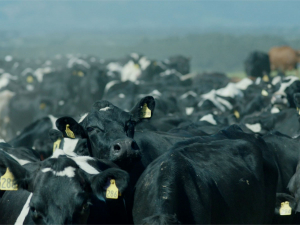Primary sector leaders have come together to make an unprecedented commitment to reducing and mitigating agricultural emissions.
Primary sector organisations have been working together over recent months to develop a five-year work plan to support and accelerate the actions necessary to reduce agricultural emissions — our Primary Sector Climate Change Commitment.
The commitment from across the agricultural, horticultural and arable sectors was announced as the Government’s today released a consultation document seeking feedback on policy proposals to reduce agricultural greenhouse gas emissions.
The joint statement says addressing biological emissions starts with actions and decisions on the farm.
“And we strongly support the option for a Joint Action Plan to establish a farm-based system for reducing emissions. This is what our Commitment seeks to achieve, for enduring progress towards the goals of reducing and mitigating agricultural emissions and building resilience of our primary sectors with a genuine partnership between the primary sector, Māori and Iwi and the government.
“We welcome the inclusion in the Government’s discussion document of a partnership approach to developing a practical, farm-based framework to reducing emissions, and we put this proposal forward in that spirit to assist the consultation process.”
Primary sector leaders acknowledge the importance of the agriculture sector playing its part as New Zealand contributes to global efforts to limit the increase in global temperature, whilst also adapting to climate change and maintaining food production.
“We share the Government’s aspirations for higher value, environmentally sustainable farming systems. Primary sector leaders acknowledge the challenges that come with climate change and have already taken steps to respond.
“We are already world leading and are committed to maintaining that position. New Zealand’s cultural heritage provides us an opportunity to develop a shared set of values, principles, and language in response to climate change. Our framework for a collective response draws on Te Ora o te Ao principles that guides our roles and responsibilities as kaitiaki and active caretakers of our environment.”
Through a joint action plan - with the primary sector, government and Maori and Iwi - farmers and growers will be able to calculate their emissions and offsets at the farm gate, assess options to reduce or mitigate their emissions, and have confidence that there is ongoing investment in a pipeline of research and tools.
The framework will address climate change within a whole farm systems framework, recognizing that farmers efforts to reduce emissions sits alongside water quality, biosecurity, biodiversity, animal welfare, and financial sustainability.
A central tenet of the Government’s discussion document is pricing of agricultural emissions. The primary sector is seeking to work with government to design a pricing mechanism where any price is part of a broader framework to support on-farm change, contributes to lower global emissions and supports farmers and growers to make practical changes on the ground. This will be critically important to enable a smooth transition for the agricultural sector.
Primary sector leaders believe the fastest progress can be made towards managing New Zealand’s biological emissions by focusing on the establishment of a farm-based framework focused on practice change, rather than the Interim Climate Change Committee proposal to impose an interim processor level cost on emissions, priced through the Emissions Trading Scheme.
The long game is emission reductions and management, not simply pricing, they say.
“We believe that an interim processor ETS obligation, at this point in time, would not achieve the same buy-in nor practice changes that the sector, Maori and Iwi, and government are collectively seeking to achieve.
“Our proposal - Primary Sector Climate Change Commitment- represents a high-level statement of our vision for, and commitment to, reducing agricultural greenhouse gas emissions, and outlines our collective commitment in response to the challenges posed by climate change, while enhancing our reputation for safe and sustainable food production and maintaining our competitiveness in international markets.
“This approach represents a departure from the past practice in this sector and requires us to forge new ground and we are strongly committed to making this work.”The full Primary Sector Climate Change Commitment can be found at http://www.beeflambnz.com/climatechangecommitment.











